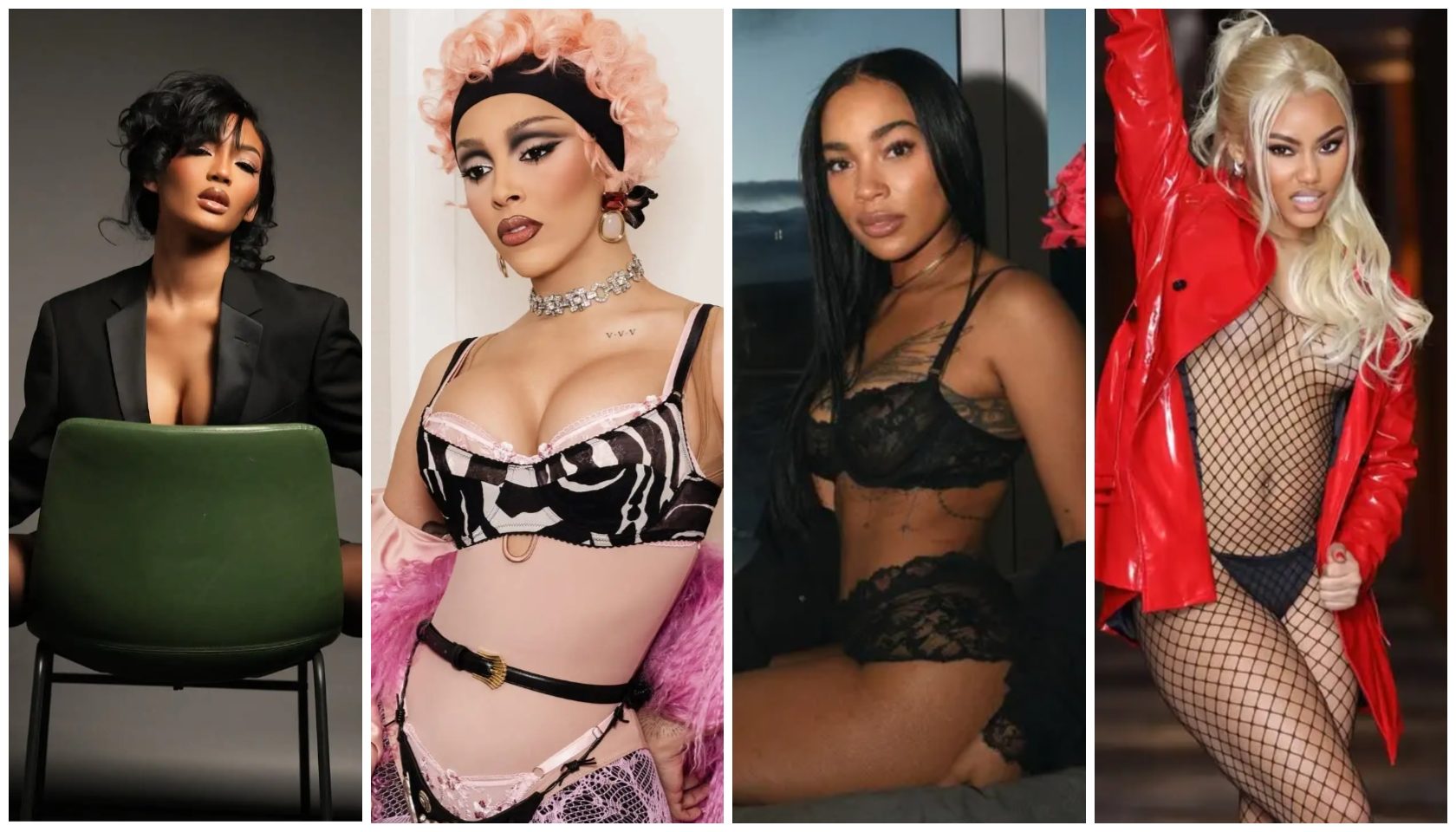Taylor Swift is on top of the world right now for many reasons, including the fact that the concert film capturing her “Eras Tour” is a smashing success.
But a new Max documentary special produced by CNN, Taking on Taylor Swift, recounts a less than stellar moment in her career: a 2017 lawsuit accusing her of plagiarizing lyrics in her 2014 megahit “Shake It Off.”
Sean Hall, one of the men who filed the lawsuit, speaks out for the first time since his filing. Songwriters Kandi Burruss and Tayla Parx, plus critics including Los Angeles Magazine’s Shirley Halperin, NPR’s Sidney Madden and Mikael Wood of the Los Angeles Times, scrutinize “the legal, ethical and cultural merits of this case and similar lawsuits lodged against some of the world’s biggest popstars,” some of which critics have decried as setting a dangerous precedent.
Here’s a look back at what happened:
What the lawsuit alleged
Three years after Swift’s addictive track was released, the artist, along with song co-writers Max Martin and Shellback, and Swift’s record companies, were slapped with the lawsuit from Hall and Nathan Butler, who accused them of having cribbed from the song “Playas Gon’ Play,” which they wrote for girl group 3LW.
For comparison, Swift’s song says, “‘Cause the players gonna play, play, play, play, play, and the haters gonna hate, hate, hate, hate, hate.”
The track from 3LW — which featured Adrienne Bailon, Naturi Naughton and Kiely Williams — when it was released in 2001, included the lines “Playas, they gonna play, and haters, they gonna hate.” It went on to chart at No. 81 on the Billboard Hot 100.
How Swift responded then
At the time, the “Delicate” singer said she was the sole author of the lyrics and denied even having heard of the “Playas Gon’ Play” song or the musicians who performed it before the suit was filed. She said the phrases were widely used when she was growing up, and she cited examples of other pieces of pop culture that used them, including singer Eric Church’s 2013 song “The Outsiders.” She noted that she’d worn an Urban Outfitters shirt with the words, “Haters gonna hate,” on it for a 2013 performance.
“In writing the lyrics,” Swift stated in a legal declaration, per NPR, “I drew partly on experiences in my life and, in particular, unrelenting public scrutiny of my personal life, ‘clickbait’ reporting, public manipulation, and other forms of negative personal criticism which I learned I just needed to shake off and focus on my music.”
While Hall and Butler’s was the most famous lawsuit over Swift’s “Shake It Off,” it wasn’t the only one. In 2015, United States District Court Judge Gail Standish dismissed a similar suit filed by musician Jessie Braham, who claimed that Swift’s track was taken from his song “Haters Gonna Hate,” that was copyrighted in 2013. (Her ruling to dismiss the case was the one that cleverly quoted many of Swift’s songs. For example, “As currently drafted, the Complaint has a blank space — one that requires Braham to do more than write his name.”)
How the court ruled
The first ruling on the lawsuit by Hall and Butler, a few months after it was filed, was in Swift’s favor. Judge Michael W. Fitzgerald, of the U.S. District Court in Los Angeles, dismissed the case, declaring that the disputed lyrics were “short phrases that lack the modicum of originality and creativity required for copyright protection.” Fitzgerald even noted other songs which mentioned players and haters, such as the Notorious B.I.G.’s “Playa Hater” and “Dreams” by Fleetwood Mac, according to the New York Times.
However, the U.S Court of Appeals for the Ninth Circuit determined in 2021 that the case had been decided too quickly, and sent it back to the lower court. Swift and her team were just weeks away from a trial when, in December 2022, a judge granted their joint request with the other side to dismiss the matter, after they had reached a settlement.
The CNN FlashDoc Taking on Taylor Swift premieres Friday, Oct. 20 on Max.







